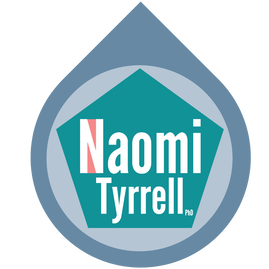
1. It’s not you, it’s academia!
There are not enough jobs in academia for the number of people with PhDs, but be reassured that there are plenty of jobs beyond academia for people with PhDs.
How many people with a PhD work beyond academia? The majority!
Some people do a PhD with their heart set on having an academic career. If that academic career doesn’t materialise it can be really hard to think about doing anything else. Sometimes people feel a sense of loss, sometimes people feel like they are a failure.
If you haven’t secured an academic position, you are not a failure. You may have all of the things that you need – you have ticked all the boxes – but at the end of the day there are not enough academic jobs for all of the people who are on the academic job market.
You may be reading this thinking ‘I did want an academic career but now I don’t now I have seen what it is like’ – and there are likely to be many factors that have contributed to that realisation. Precarity, mobility, pay, pressure, work-life balance, toxicity – there are many reasons why people choose to leave academia, in addition to the actual lack of jobs!
2. You don’t have to retrain
Sometimes people feel as though they have to retrain to ‘be’ something if they leave academia.
Retraining is fine if that’s what you want to do, or you find out that you need an additional qualification to develop a specific career. You can do short courses through LinkedIn Learning (that you can access for free through the University), Udemy or Coursera if you feel that you want to develop some new skills before investing a lot of money in a new area but you don’t have to retrain in order to secure an alt-ac position.
You have (or are going to have) a PhD – you are highly trained! You are an expert in something, you have unique knowledge and a skillset that many people do not have! That has value – your knowledge, skills and experiences are valuable. It may not feel like it because you are surrounded by other people doing PhDs so it may feel like everyone can do what you do. But…they can’t! You may not know what to do outside of academia but your knowledge, experience and skillset is highly desirable. The task you have is not gaining ‘more’ but knowing how to ‘sell’ what you have to the people who need it!
If you want some inspiration on what you can do, listen to the podcasts episodes Dr Becky Baines, Dr Cara Clancy, Dr Gina Kallis, Dr Seb Stevens.
3. Your knowledge and skills are in demand beyond academia
Doing a skills audit [Beyond Academia: How to Sell Your Skills] can encourage you to think flexibly about your skills. You probably already know what knowledge you have but you could do a quick knowledge audit too!
If you’re not really sure where to start in your alt-ac quest, take a look at some job advertisements on sites like Indeed or Guardian Jobs. You can search by the salary you’d like to earn, the location, key words – put some information in and see what it comes up with. You can do this on LinkedIn with the matching service too. How do you feel about the possible jobs that appear? See what the essential and desirable criteria are. How do you match up? Don’t forget that you don’t have to tick every one off in order to apply! Do some job specs resonate with you more than others? Can you imagine yourself in some of the roles? Are there things that really put you off a job spec?
4. There are networks of people who can help you if you want to transition out of academia
Asking for help is sometimes frowned upon in academia; we think we should have it all figured out, or at least be able to figure it out on our own! However, if you are thinking about transitioning out of academia, I would suggest you draw on the support and advice on people who have done it before you. These free networks exist on Facebook, LinkedIn and Twitter. Sure, there are Alt-Ac Career Coaches and Alt-Ac Career Courses and these paid-for services can be really valuable but, as a starting point, there is a huge amount of information that is freely available.
Informational interviews – asking someone questions about their role or career development – can be really helpful. Once you start to build your alt-ac network, ask some people if they could spare 15-20 mins to chat with you over Zoom. Find out about what they do and see whether it would be a god fit for you. Find out how they made their transition out of academia – what steps did they take? What would they do differently if they were to do it again? You can listen to the podcasts with Plymouth PhDs here for advice too Dr Becky Baines, Dr Cara Clancy, Dr Gina Kallis, Dr Seb Stevens.
Often, after just a couple of weeks of researching an alt-ac career and doing some informational interviews, people switch from thinking ‘What can I do if I leave academia?’ to ‘There are so many options,’ and then ‘What do I actually want to do?’
5. There are plenty of resources that can help you if you want to transition out of academia
Over the last few years there has been an explosion of resources designed to help people in their alt-ac quest! Books, blogs, vlogs, podcasts, Facebook groups – there’s even alt-ac help on TikTok! Here’s a list of resources that you can check out (it’s not exhaustive, some are based in North America rather than the UK but they all contain pearls of alt-ac wisdom!).
- My free group on Facebook for 1000+ academics who have or are aspiring to transition out of academia successfully: AltAc Careers Uk | Facebook
- You don’t have to stop researching and/or publishing if you move beyond academia. Check out what’s on offer from THE NATIONAL COALITION OF INDEPENDENT SCHOLARS | (ncis.org)
- Vitae isn’t just about academic careers – check out their resources for alt-ac careers Researcher professional development (vitae.ac.uk)
- Dr Chris Cornthwaite felt a huge sense of loss when he transitioned out of academia and has a huge amount of helpful advice over on his website: Home – Roostervane
- Dr Holly Prescott is a Researcher Developer at the University of Birmingham and has a really helpful blog which gives advice and has interviews with people who have moved beyond academia (including me!): PostGradual: The PhD Careers Blog – Taking PhD careers one tip at a time (phd-careers.co.uk)
- Dr Eric James Stephens offer really useful perspectives on life after academia – you can follow him on LinkedIn or check out his reels on Tik Tok: https://www.tiktok.com/@translate.academia
- Dr Jen Polk has a huge amount of information, advice and a great book list all focused transitioning out of academia (yes, people have written books about it!): About Jen – From PhD to Life
- Professor Karen Kelsey (who runs The Professor is In training Programme) runs a helpful Facebook group which is focused more towards the USA and Canada but there are people on there from all over the world: The Professor Is Out | Facebook
If you’re not filled-to-the brim with advice and support from those sources, here are a few more for you to check out when you have time!
- The Thesis Whisperer
- The Versatile PhD | Helping graduate students and PhDs envision, prepare for, and excel in non-academic careers since 1999
- Welcome | ImaginePhD
- stemventurist – YouTube
- Podcast | What are YOU going to do with THAT? (what2dowiththat.com)
- Podcast – Papa Phd Podcast
- Recovering Academic – There is sunshine outside the ivory tower
- Once a Scientist – Hosted by Nick Edwards
- Hopkins Biotech Podcast | Listen to Podcasts On Demand Free | TuneIn
- Women in STEM | Higher Education Podcast | EdUp Experience

